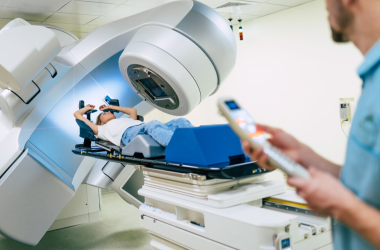Last Updated on: 21st November 2023, 09:29 pm
The market for women’s health technology, also known as the femtech market, has been on the rise for several years. What began as technological solutions focused on pregnancy and fertility has, as more female founders have established their own companies, grown to cover areas including general women’s health issues including pelvic health, menopause, maternal cases, and even mental health-related issues.
Indeed, femtech is thought of by many to be one of the broader health care market’s key growth areas in the coming years. This is supported by the staggering value of investments in the industry by venture capital firms like Armistice Capital, Alumni Ventures, and Y Combinator — more than $1 billion in 2022. By 2027, it’s estimated that the sector will be worth $1 trillion.
Why is femtech important? Women’s health has long since suffered neglect, but in recent years, the issue has come under scrutiny worldwide in response to government efforts to bring it on par with men’s health.
In the United Kingdom, for example, the first Women’s Health Strategy for England was introduced in 2022. “It is not right that 51% of our population are disadvantaged in accessing the care they need, simply because of their sex,” a government minister said at the time.
In many ways, femtech is leading the way to create health equality between men and women — and it’s technology that’s making this happen.
Notable Investments in Femtech
There’s no shortage of examples when it comes to substantial femtech investments. Just a few months ago, Mithra Pharmaceuticals SA — a company dedicated to women’s health — announced an agreement to raise more than 20 million euros (approximately $21 million) through a private placement led by Armistice Capital, a professional institutional investor from New York.
Under the terms of the deal, Armistice Capital committed to subscribe for 10 million new shares of Mithra Pharmaceuticals, of which 7.8 million shares will be admitted to trading and listing on Euronext Brussels immediately upon their issuance. The remaining 2.2 million shares will be admitted to trading and listing following the approval of a listing prospectus.
Meanwhile, women’s health company HerMD raised $18 million in a Series A-1 funding round. Founded by Dr. Somi Javaid, the company focuses on providing specialized care for women at all stages of life. The company’s unique approach, according to HerMD, includes offering longer appointments and comprehensive women’s health care services, both in-person and virtually.
One of the biggest investments of the year went to instant formula company Bobbie, which raised $70 million in Series C funding to acquire Nature’s One. Bobbie is an organic infant formula company that produces its products according to a United States Department of Agriculture and EU organic recipe, with ingredients sourced from grass-fed cows. Nature’s One was Bobbie’s primary competitor.
At the time of writing, however, it’s BillionToOne’s $125 million round of venture funding from March 2022 that’s the femtech sector’s most valuable. BillionToOne is a molecular diagnostics company that helps physicians screen unborn babies for common and serious genetic conditions. BillionToOne’s molecular counting technology increases the resolution of disease detection using cell-free DNA by over a thousandfold. The company raised a further $48.5 million in December of the same year.
The U.S. Continues To Lead
In terms of investment value by region in the past five years, the United States has held the top ranking and attracts the majority of femtech VC investment, with $4 billion raised. The second-largest region is the United Kingdom, which has raised $442 million as of July 2023. This, of course, represents a significant investment gap between the U.S. and the rest of the world.
These figures are in line with overall health care spending. The U.S. has the highest health care spending out of all Organization for Economic Cooperation and Development countries, spending double the average percentage of gross domestic product on health care. Europe is still a critical femtech market despite this; the U.K. alone has several femtech startups whose products and services are helping the industry to continue innovating and solve some of the most pressing challenges facing the women’s health care space.







